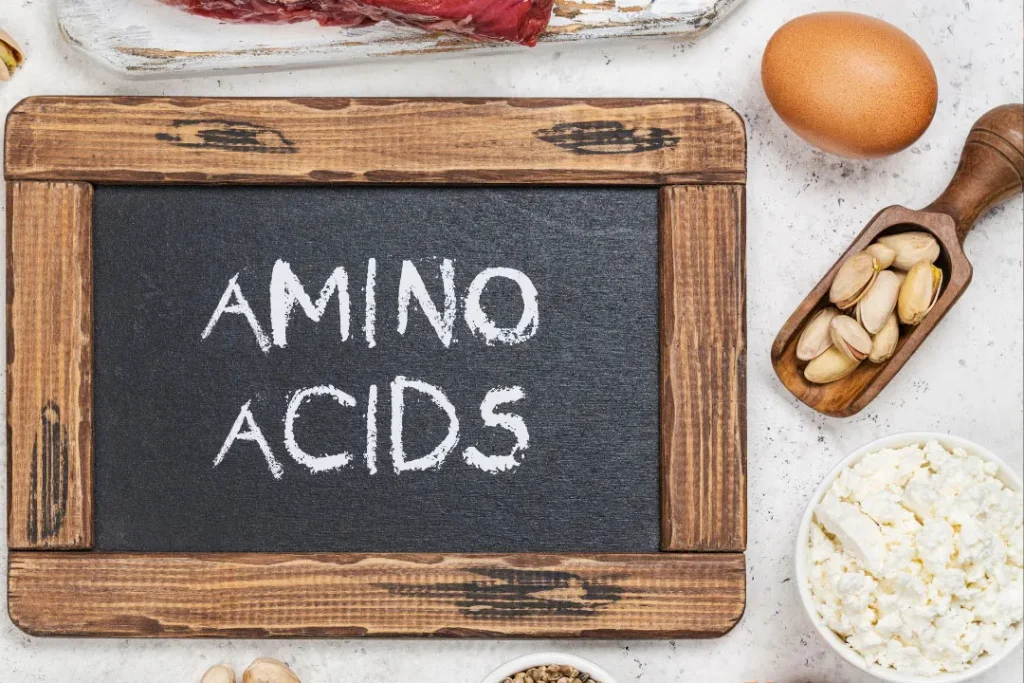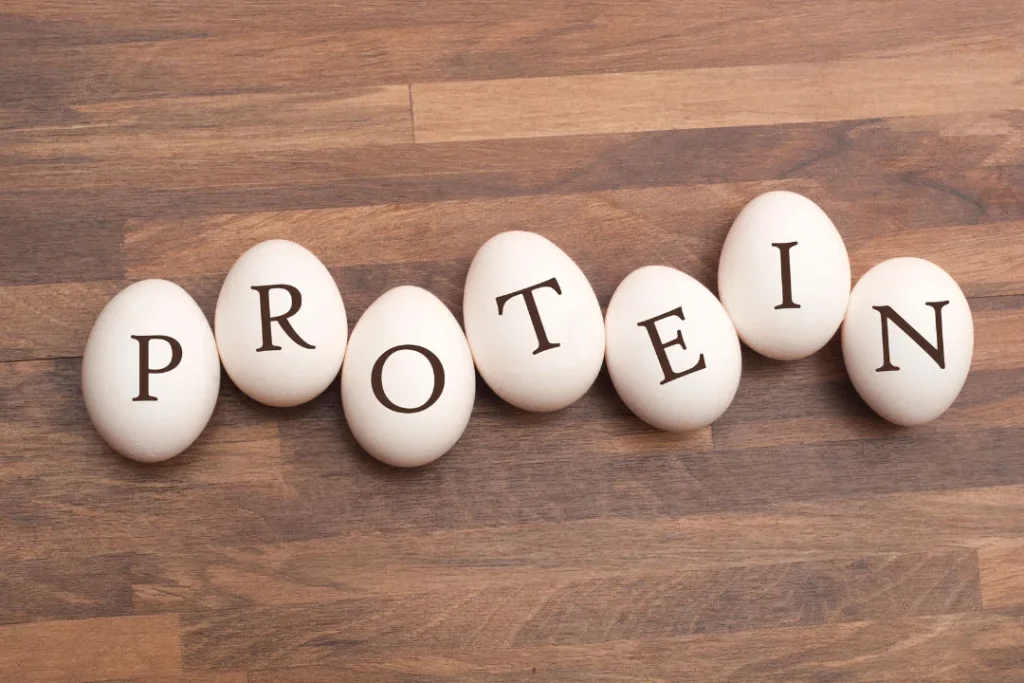Collagen protein is a great source for rejuvenating skin, enhancing workouts, and improving metabolism. But is collagen a complete protein? We’ll discuss whether or not you should use collagen as a dietary supplement and why all collagen supplements are not created equal.
Collagen is the most abundant protein in the human body. It’s a vital building block in bones, ligaments, tendons, and muscles and is probably best known for its benefits to hair, nails, and skin. Collagen is the glue that keeps your tissues together, enhances elasticity for better movement, and ensures your body is structurally sound. But the body’s natural collagen production begins to slow early, producing about 1% less collagen each year after age 20.
You May Also Like:
Natreve Vegan Protein Powder vs. Nuzest Clean Lean Protein
Finding the Best Women’s Protein Powder: 5 Top Brands Reviewed
Is Collagen a Complete Protein? Myth Busted! is an original (HerHealthWatch) article.
Is collagen a complete protein if it doesn’t contain all the essential amino acids?
Collagen, like all protein structures, is constructed from amino acids. There are two classifications for amino acids: essential and nonessential. Collagen contains 19 amino acids, 8 of which are essential amino acids. The body can’t produce essential amino acids, so it must obtain them through food. They are vital for immune response, energy production, protein synthesis, and muscle regeneration. Nonessential amino acids are essential for health as well. But the body can synthesize these amino acids if it does not have enough of them.
While collagen has terrific benefits, it’s not a complete protein. It needs to contain nine essential amino acids to be a complete protein. Collagen lacks tryptophan, which helps boost your mood and improve sleep through melatonin and serotonin production. Research has shown that low levels of serotonin are associated with feelings of irritability, anxiety, and depression. Adding tryptophan to a collagen supplement will give you all the beneficial amino acids the body cannot produce.

Collagen or whey; which is better?
If the answer is NO, “Is collagen a complete protein?” people may assume collagen is inferior to a complete protein. Whey is a complete protein but not necessarily a better protein. Firstly, a protein’s absorption rate is essential. The liquid in whey protein shakes typically takes around 90 minutes to fully absorb, although adding enzymes can speed up the process. Hydrolyzed collagen, on the other hand, is already broken down. If it’s nano-hydrolyzed collagen, it can be digested by the body more efficiently, usually within 15 minutes.
Whey and collagen help build muscle after strength training, but whey stimulates higher levels of protein synthesis. Collagen, however, helps maintain nitrogen balance and appears to do a better job of improving body composition. Preliminary research has also found that hydrolyzed collagen increases bone mass during growth periods and may help prevent age-related bone loss.
Whey contains more branch-chain amino acids, key in recovery and muscle synthesis. However, collagen includes three amino acids that are generally lacking in whey. One of those amino acids is hydroxyproline. Without hydroxyproline, your body cannot build or repair. Labeled as a “semi-essential” amino acid, it is crucial in wound healing. When tissues are damaged, they need extra collagen and other structural proteins to heal and repair. Research has also found that whey protein heightens the inflammatory response, while collagen does not.

Is collagen a complete protein when fortified?
Alexander Kunz and Jeff Byers are former Navy SEALS who believe proper nutrition can help heal the body. Working with some of the world’s top chemists and dieticians, they initially developed a medical-grade collagen formula used in over 4,000 medical facilities to promote the rapid healing of post-surgical wounds. Kunz says, “We are a clinical product, and the reason that’s important is because every claim we make, we must back by a proven study. Our collagen formula is proven to heal wounds two times faster.”
Kunz and Byers, who wanted to offer the same healing benefits to consumers, developed a liquid collagen product called Frog Fuel Power Protein. Chief Marketing Officer Aaron Saari says, “We fortify our collagen to have all 22 essential, nonessential, and conditionally essential amino acids, so it’s a complete protein. Many athletes or gym enthusiasts won’t take collagen because it is an incomplete protein.” The collagen in Frog Fuel, fortified with tryptophan and six other amino acids, is nano-hydrolyzed down to a unit about half the size of a pore in the stomach for 100% rapid absorption.
Frog Fuel is popular among elite athletes, but Saari says, “Many of our customers are not elite athletes, but they are maintaining their mobility and youthfulness. Our amino acid profile gives our product the healing benefits because of the specific amount of each of the 22 amino acids.” Frog Fuel’s customers are people of all ages who want a product that makes them feel younger for longer.

Is collagen a complete protein? No, but fortified collagen has plenty of health benefits.
Collagen, in its natural form, is not a complete protein. Collagen is not readily available in our current diet, unlike milk whey. It’s found primarily in the skin, connective tissues, and bones of animals, parts that people do not readily consume. The genetic code recognizes 22 amino acids, nine classified as essential. Because collagen is not a complete protein, be sure your collagen supplements are fortified with tryptophan and other amino acids to give you the full health benefits of collagen protein.

For further reading:
Good Housekeeping: Do collagen supplements work?
Women’s Health Magazine: WTF is a complete protein?
Shape Magazine: Are collagen supplements worth it?
CNN: Is ingestible collagen the fountain of youth?
Important Note: The information contained in this article is for general informational purposes only and should not be construed as health or medical advice, nor is it intended to diagnose, prevent, treat, or cure any disease or health condition. Before embarking on any diet, fitness regimen, or program of nutritional supplementation, it is advisable to consult your healthcare professional in order to determine its safety and probable efficacy in terms of your individual state of health.
Regarding Nutritional Supplements Or Other Non-Prescription Health Products: If any nutritional supplements or other non-prescription health products are mentioned in the foregoing article, any claims or statements made about them have not be evaluated by the U.S. Food and Drug Administration, and such nutritional supplements or other health products are not intended to diagnose, treat, cure, or prevent any disease.

